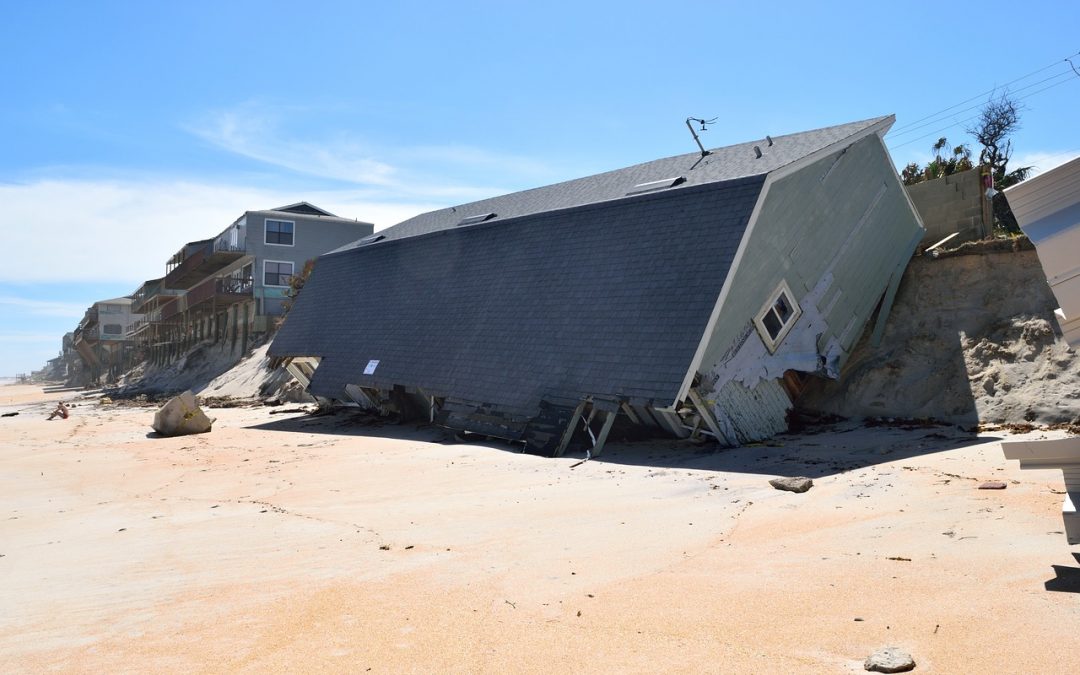Did you know that financial losses due to increasing natural disaster occurrences are trending up? Every year natural disasters cause damages worth billions of dollars. However, only a minute percentage of this damage is insured. As the insurance cavity has moderated in recent years, there is still a substantial gulf in developing nations. So, it is the case that individuals and corporates influenced by calamity have to proceed irrespective, and are enforced to rely on aids from their government and foreign countries.
Some Common Natural Disasters
- Wildfires
- Thunderstorms
- Hail
- Tornadoes
- Floods
- Hurricanes
- Typhoons
- Cyclones
- Droughts
- Heatwaves
- Earthquakes
- Volcano
Developing Insurance Solutions
Insurers who seek to evaluate extreme risks and develop pioneering insurance solutions need to have in-depth knowledge of the risks and the factors that influence those risks. Hence, study into scientific correspondences and analysis of relevant high-level data are vital elements when evaluating the trends and risks caused due to natural hazards.
When it became evident that general and covered losses from natural disasters were rising, researchers and insurance experts have been examining and evaluating the whole spectrum of natural hazards like earthquakes, floods, storms, and volcanic eruptions.
The Losses Occurred from Natural Disasters
The pace of natural disasters has been increasing, hence a rise in the number of recorded losses has also been observed. The most destructive and expensive natural disaster that occurred was Tohoku Earthquake in 2011, resulting in an overall loss of USD 210 billion. However, if we review the insured losses, the most expensive natural disaster was Hurricane Katrina, which struck New Orleans in 2005 and valued at UDS 60.5 billion.
Health Insurance and Natural Disaster
Individual and family health insurance plans provide coverage for expenses if the policyholder faces any critical medical emergency. Health insurance helps you stay at top of precautionary healthcare services. So, if you have health insurance coverage, you can save money on a doctor visit, prescriptions medications, precautionary healthcare, and other health-related services. The typical health insurance policies for individuals encompass regular premiums, yearly deductibles, co-payments, and co-insurance. However, health insurance plans do not include natural disasters.
Homeowner Insurance
Though a natural disaster insurance policy does not exist, however, your homeowner insurance is designed to shield you from storms and other natural disasters. Some extreme natural disasters may include tornados, wildfires, volcanoes, snowstorms, and dropping meteorites.
Despite the vast coverage that a homeowner plan provides, it is still important to know that the policy does not provide coverage for everything. A majority of the homeowner insurance plans do not cover floods and earthquakes.
Flood
Floods are usually omitted from homeowner insurance coverage. So, if you suspect a flood attack, you need to purchase a separate flood insurance plan via National Flood Insurance Program (NFIP). NFIP is a state program that performs research on flood damage in the US and works in collaboration with private brokers to facilitate state-sponsored flood insurance. If you live in a flood-prone region, you should try to purchase an insurance plan before the start of flood season as it helps prevent uninsurable damage.
Earthquake
A majority of the insurance corporates do not provide coverage that is caused due to earth’s movement. These include landslides, avalanches, earthquakes, and sinkholes. So, if you reside in an area prone to earth’s sudden movements, you should consider purchasing a separate insurance plan. However, a handful of carriers provide earthquake insurance plans in California and Washington.
Hailstorm
Typically, a homeowner insurance plan shields you against hail damage. Though, it might change if you reside in an area that is susceptible to frequent hailstorms. Considering the situation, insurance companies are likely to levy higher deductibles or limit payments. This implies that you might not be able to file a claim of the hail instigates superficial damage rather than physical harm.
Tornado
Homeowner insurance policies usually cover tornadoes. Hence, for insurance reasons, the wind damage imposed by tornadoes is not distinct from that caused by tinier and more common blasts. Though, due to the damaging nature of the storms, tornado insurance can be more complex for homeowners who reside in more vulnerable regions. So, the insurers are likely to charge a separate deductible for wind-related storms. It is usually a flat amount that is a percentage of your total property coverage.
Hurricane
A homeowner insurance plan is likely to provide fractional coverage for hurricane damage. So, in the case of tornadoes, losses incurred by hurricane’s strong winds are compensated in the standard HO-3 homeowner insurance plan.
Though, insurers eliminate a hurricane’s flood damage from security. However, if your home was damaged due to a hurricane, your insurer would determine whether the damage was caused by the hurricane wind or associated storm.
However, if you reside in an area that is susceptible to hurricanes, you should consider purchasing flood insurance via NFIP to prevent a situation in which you are deprived of coverage under your standard plan.
Vehicle Damage
Homeowner insurance does not include vehicle repairs that might be damaged due to a natural disaster. So, if your vehicle requires repair, your car insurance is eligible for compensating the damage.
How Do Insurance Corporates Compensate for Natural Disasters?
After you undergo a natural disaster, your compensation depends on the coverage type you have chosen. An insurance plan’s dwelling coverage is available in three types: actual cash value, substitute cost value, prolonged or definite value.
Suppose that your house is struck by a natural disaster, and you own a plan with replacement value coverage. So, if your claim has been accepted, your insurer would take into account your house’s depreciation and deduct the amount from the final compensation amount. On the contrary, a replacement value plan does not account for depreciation, however only compensates for the insurance policy limit.
So, to promise you are fully compensated, you will have to buy an extended replacement value. This coverage type ascertains that if surprise costs pop up in reconstruction and exceed your policy limit, you will still be recompensed.

